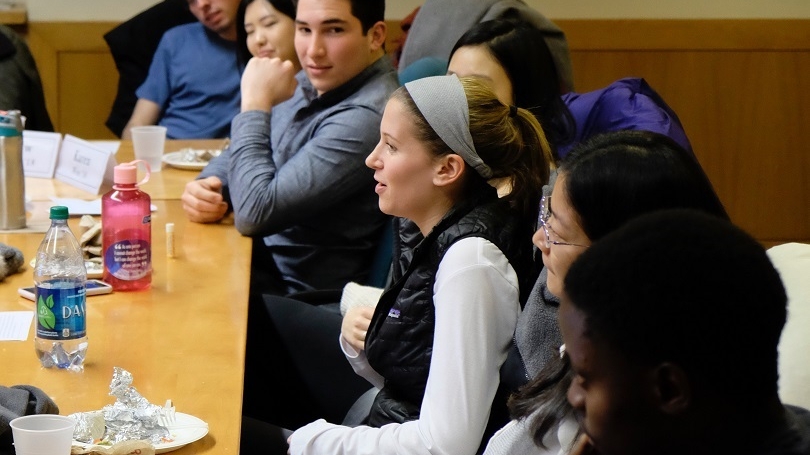
- Public Policy
- Leadership
- Funding
- News & Events
- About the Center
Back to Top Nav
Back to Top Nav
Back to Top Nav
Back to Top Nav
Gama Perruci, Dean of the McDonough Leadership Center, Marietta College, facilitated a Rockefeller Global Leadership Program session on globalization. He began with a brief explanation on how the form of the modern nation has changed over time. Dr. Perruci then explained the three stages of globalization and how today, in the third stage of globalization, national borders have become permeable as individuals are becoming increasingly mobile while corporations compete for talent in the international realm.
He then facilitated a discussion of Garry Davis and his vision of a peaceful, united world, where people of different nationalities can come together as "World Citizens." Although students showed varying degrees of opposition to this idea, it was clear that most students thought Davis’ view was not only unrealistic but also not ideal. At the same time, each student had a different reason for disagreeing with Davis' idea. Some students talked about the importance of culture and that culture cannot be separated from a specific geography. Some students talked about the importance of progress and how competition between countries can lead to the betterment of mankind. Others said that a lot of conflicts actually arise between different cultures and religions as often as it does between different nations.
“I found the discussion of global citizenship and becoming international in identity, through the lens of individual leadership, really new and intriguing,” said RGLP participant Hanna Sheikh. “The idea that the world is becoming more and more open to professionals from varying identities, backgrounds and nationalities is really exciting. I felt the whole discussion about how as future college graduates we have a responsibility to learn how to navigate this increasingly globalized world was great reminder of what my goals in the program are.”
Another RGLP participant, Soohyung Hur, shared this thought. “The diversity of reasons for disagreement made me realize that although we reached the same conclusion in this particular case, some students' values or approach were quite different from mine and that we could easily completely disagree on other issues. It was a good opportunity to reflect on my unique lens compared to that of the other participants and learn how to think from other approaches as well. After today's session, I am more excited to see how our discussions would look like in our consequent sessions.”